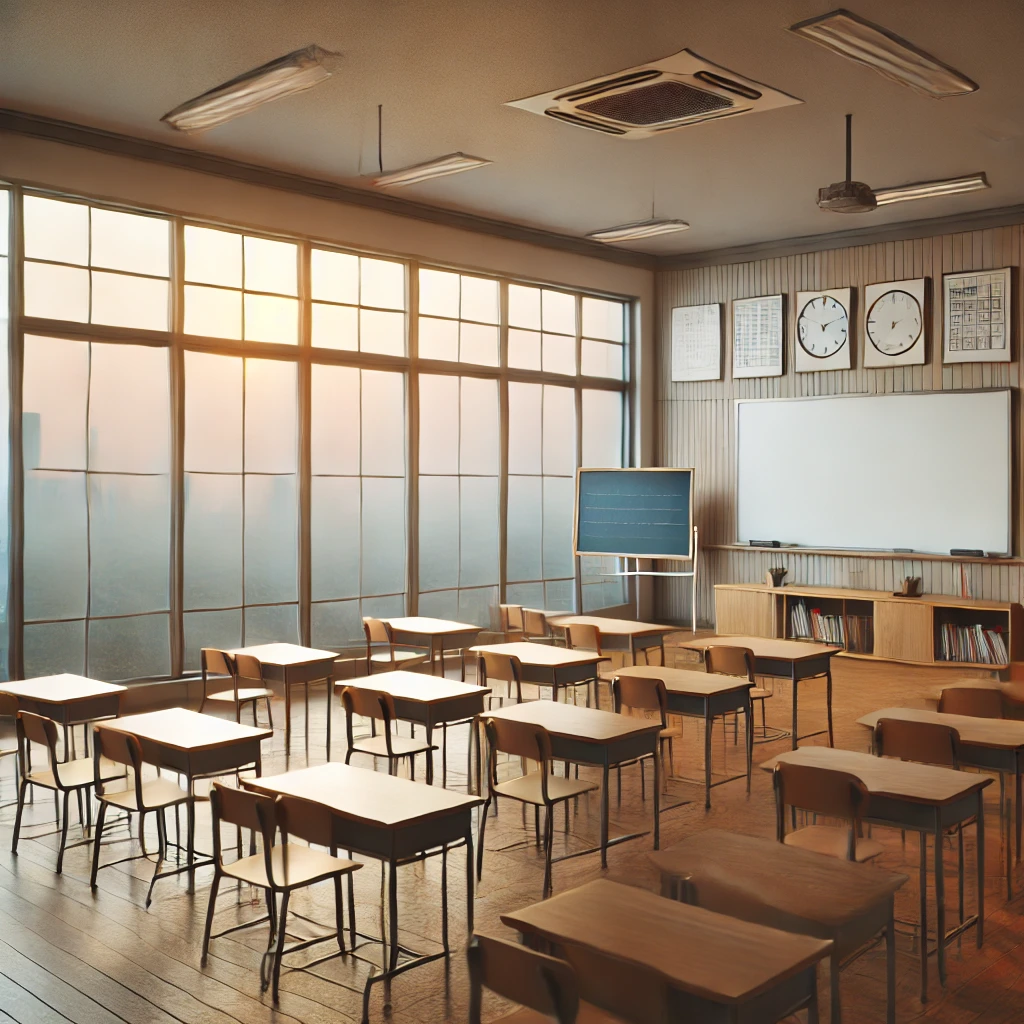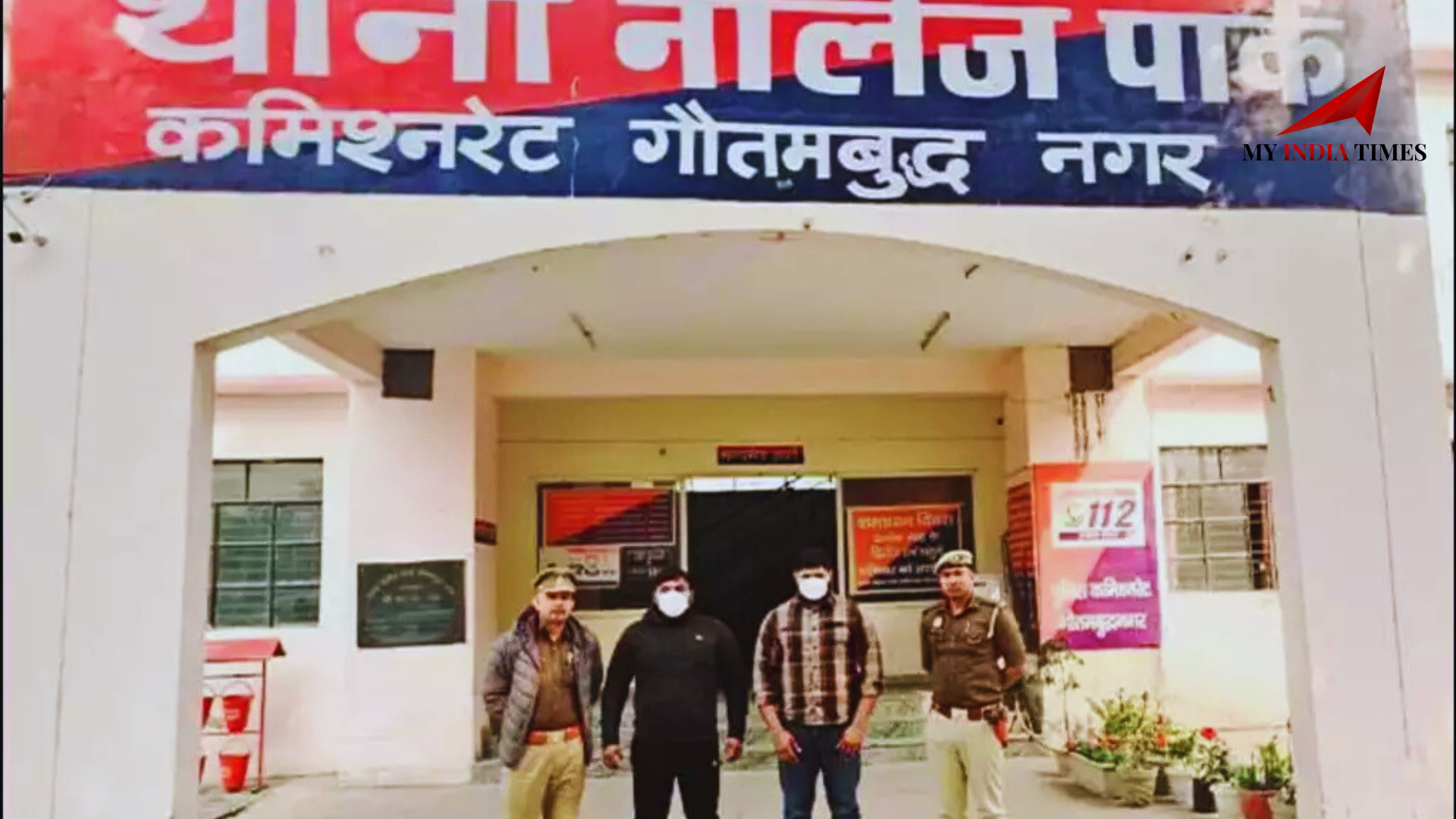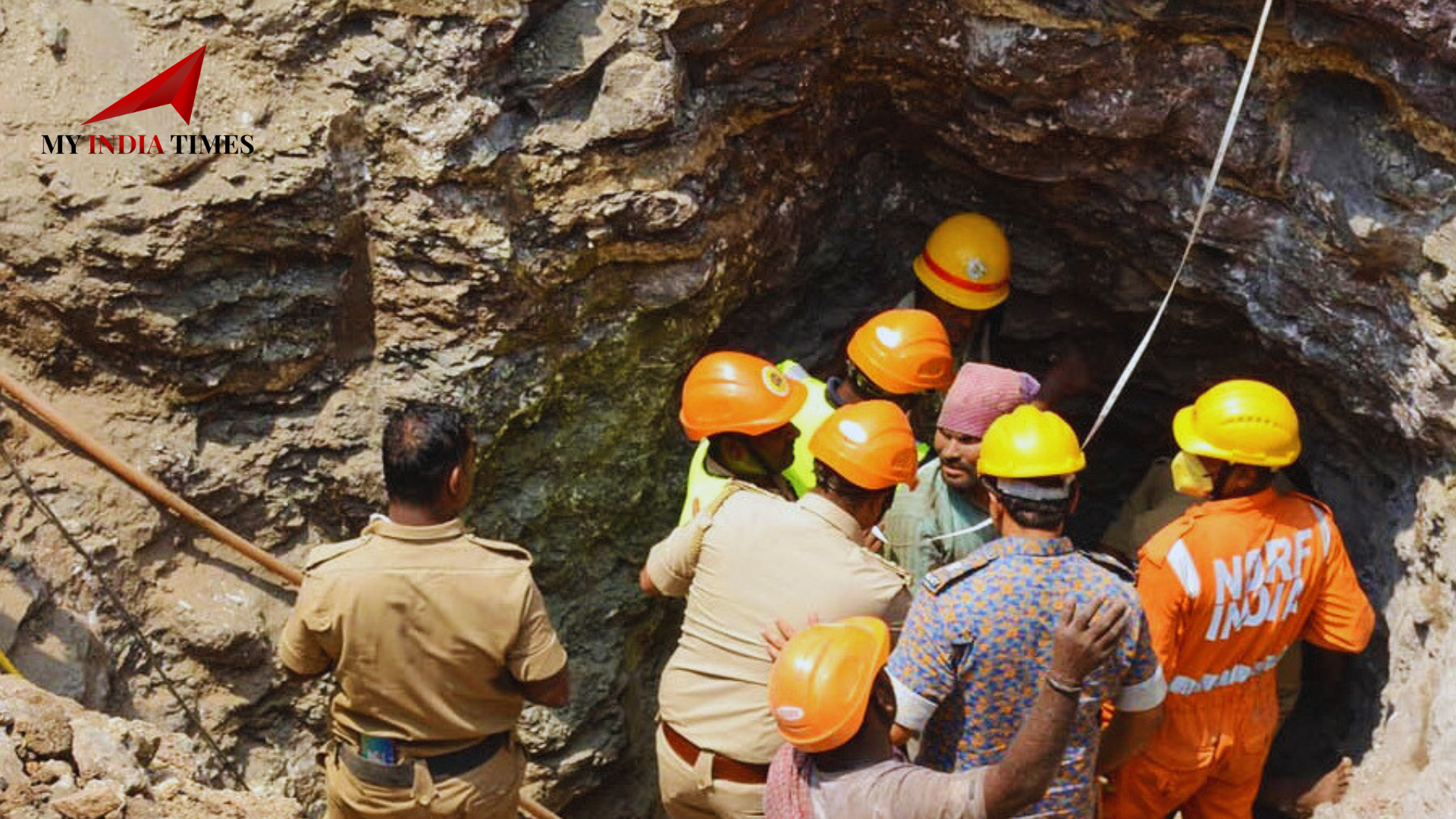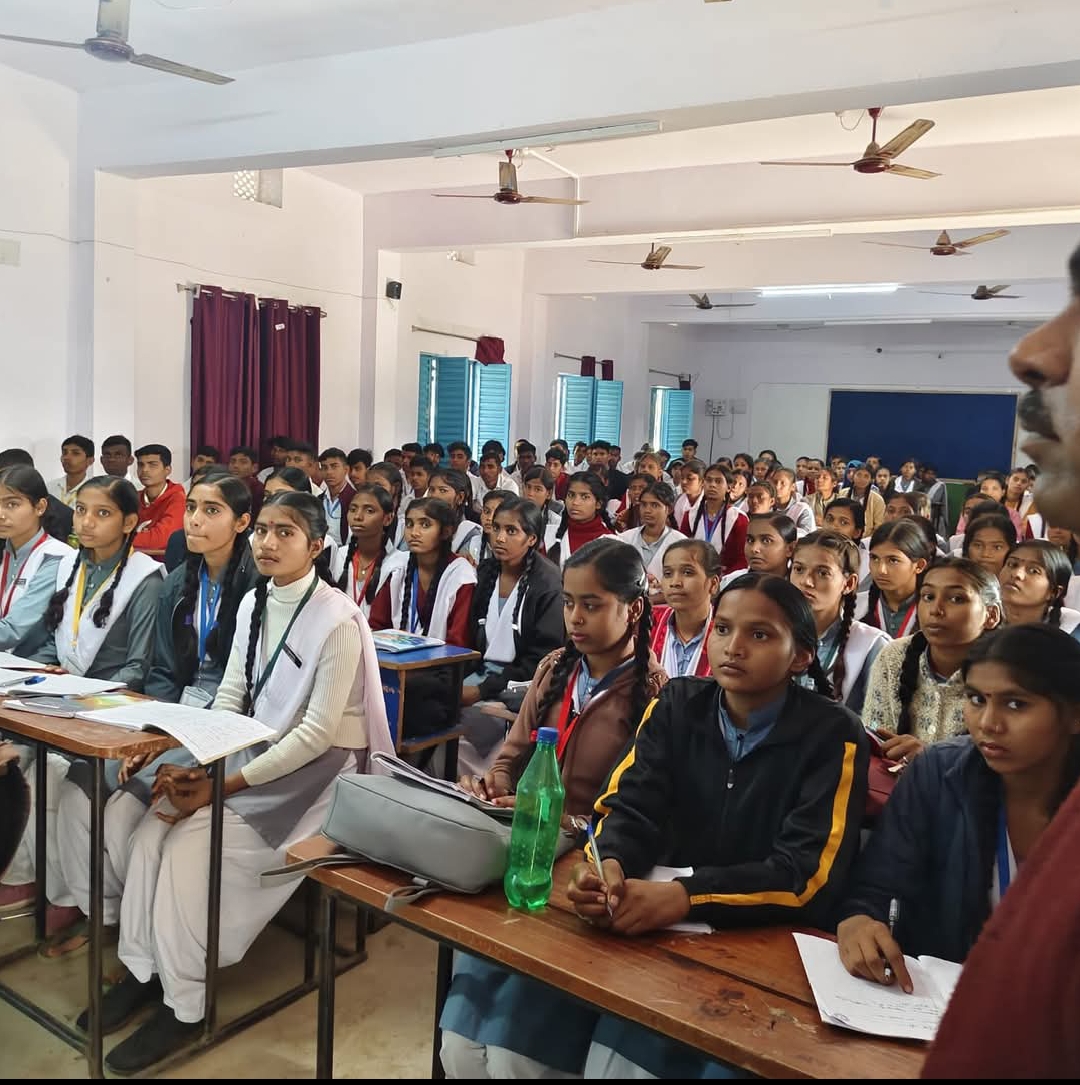Home / city / Haryana Government Implements Hybrid Learning in Gurugram and Faridabad Due to Alarming Air Pollution Levels
Haryana Government Implements Hybrid Learning in Gurugram and Faridabad Due to Alarming Air Pollution Levels
By: My India Times
4 minutes read 33Updated At: 2024-12-20

Prioritizing Student Health as Air Quality Deteriorates
As air quality in the Delhi-NCR region reaches hazardous levels, the Haryana government has taken decisive action to protect students' well-being. In an official directive, schools in Gurugram and Faridabad are instructed to switch to hybrid learning mode (both physical and online classes) for all students, with the exception of classes 10 and 12. This action, which takes effect right away and will be in effect until further notice, demonstrates the state's dedication to protecting pupils from the harmful impacts of pollution while maintaining educational opportunities.
Stage-IV of GRAP: A Necessary Measure in the Face of Severe Pollution
The decision aligns with Stage-IV measures under the Graded Response Action Plan (GRAP), which are activated when pollution levels become extremely dangerous. With the air quality index (AQI) hitting hazardous levels, the Commission for Air Quality Management (CAQM) issued guidelines requiring schools to minimize physical exposure for students, especially younger ones who are most vulnerable to respiratory issues caused by poor air quality.
The official notice from the Haryana government states:“All actions as envisaged under Stage-IV of the latest GRAP Schedule as issued by the Commission vide its order dated 13.12.2024 be implemented with immediate effect.” These Stage-IV actions are in addition to the measures already implemented under Stage-I to Stage-III of GRAP, which have been in effect since early December 2024.
Hybrid Learning for Classes Up to 9 and 11: Balancing Safety and Education
Under the new mandate, schools are required to offer hybrid learning for students in classes up to 9 and 11. This approach allows students to participate in classes either in person or online, giving parents the option to choose the safest mode for their children. By keeping classes 10 and 12 exempt from this rule, the government aims to prevent disruptions for students preparing for critical board exams.
School authorities have been directed to promptly communicate these changes to parents and guardians. This quick and transparent communication is essential to facilitate a smooth transition and ensure that students' education continues without unnecessary interruptions.
Earlier Measures: School Closures for Younger Students
This latest directive follows previous actions taken under Stage-III of GRAP. In early December 2024, schools in Gurugram were closed for students up to class 5 to shield young children from the toxic air. For students in classes 6 and above, hybrid learning had already been implemented, providing flexibility to both schools and families.
The escalation to Stage-IV measures highlights the severity of the air quality crisis and the urgent need for stricter interventions. These actions are part of broader efforts to protect public health and maintain educational continuity amid challenging conditions.
Collaborative Efforts to Ensure Effective Hybrid Learning
The Haryana government’s hybrid learning initiative reflects a balanced strategy to safeguard student health while minimizing disruptions to academic progress. Parents, teachers, and school administrators are encouraged to work together to adapt to this new mode of learning.
The success of hybrid education will rely on:
Clear communication between schools and parents.
Efficient use of digital learning platforms.
Support for students and teachers to navigate online and offline learning seamlessly.
By adopting these measures, schools can ensure that education remains effective and accessible, even in the face of environmental challenges.
Urgent Need for Sustainable Solutions to Pollution
The need for hybrid learning due to hazardous air pollution serves as a wake-up call for more robust and sustainable pollution control measures. To prevent such crises in the future, long-term solutions are essential, including:
Reducing vehicular emissions.
Controlling industrial pollutants.
Promoting green energy and sustainable practices.
These measures are vital not just for students’ health but for the well-being of the entire population in the Delhi-NCR region.
Looking Forward: Safeguarding Health While Pursuing Education
As the region grapples with severe pollution, the Haryana government’s proactive steps aim to strike a balance between health and education. With hybrid learning in place, the immediate goal is to keep students safe while ensuring educational continuity. In the long term, the focus must remain on achieving cleaner air and a healthier environment for all.
....
Prioritizing Student Health as Air Quality Deteriorates
As air quality in the Delhi-NCR region reaches hazardous levels, the Haryana government has taken decisive action to protect students' well-being. In an official directive, schools in Gurugram and Faridabad are instructed to switch to hybrid learning mode (both physical and online classes) for all students, with the exception of classes 10 and 12. This action, which takes effect right away and will be in effect until further notice, demonstrates the state's dedication to protecting pupils from the harmful impacts of pollution while maintaining educational opportunities.
Stage-IV of GRAP: A Necessary Measure in the Face of Severe Pollution
The decision aligns with Stage-IV measures under the Graded Response Action Plan (GRAP), which are activated when pollution levels become extremely dangerous. With the air quality index (AQI) hitting hazardous levels, the Commission for Air Quality Management (CAQM) issued guidelines requiring schools to minimize physical exposure for students, especially younger ones who are most vulnerable to respiratory issues caused by poor air quality.
The official notice from the Haryana government states:“All actions as envisaged under Stage-IV of the latest GRAP Schedule as issued by the Commission vide its order dated 13.12.2024 be implemented with immediate effect.” These Stage-IV actions are in addition to the measures already implemented under Stage-I to Stage-III of GRAP, which have been in effect since early December 2024.
Hybrid Learning for Classes Up to 9 and 11: Balancing Safety and Education
Under the new mandate, schools are required to offer hybrid learning for students in classes up to 9 and 11. This approach allows students to participate in classes either in person or online, giving parents the option to choose the safest mode for their children. By keeping classes 10 and 12 exempt from this rule, the government aims to prevent disruptions for students preparing for critical board exams.
School authorities have been directed to promptly communicate these changes to parents and guardians. This quick and transparent communication is essential to facilitate a smooth transition and ensure that students' education continues without unnecessary interruptions.
Earlier Measures: School Closures for Younger Students
This latest directive follows previous actions taken under Stage-III of GRAP. In early December 2024, schools in Gurugram were closed for students up to class 5 to shield young children from the toxic air. For students in classes 6 and above, hybrid learning had already been implemented, providing flexibility to both schools and families.
The escalation to Stage-IV measures highlights the severity of the air quality crisis and the urgent need for stricter interventions. These actions are part of broader efforts to protect public health and maintain educational continuity amid challenging conditions.
Collaborative Efforts to Ensure Effective Hybrid Learning
The Haryana government’s hybrid learning initiative reflects a balanced strategy to safeguard student health while minimizing disruptions to academic progress. Parents, teachers, and school administrators are encouraged to work together to adapt to this new mode of learning.
The success of hybrid education will rely on:
Clear communication between schools and parents.
Efficient use of digital learning platforms.
Support for students and teachers to navigate online and offline learning seamlessly.
By adopting these measures, schools can ensure that education remains effective and accessible, even in the face of environmental challenges.
Urgent Need for Sustainable Solutions to Pollution
The need for hybrid learning due to hazardous air pollution serves as a wake-up call for more robust and sustainable pollution control measures. To prevent such crises in the future, long-term solutions are essential, including:
Reducing vehicular emissions.
Controlling industrial pollutants.
Promoting green energy and sustainable practices.
These measures are vital not just for students’ health but for the well-being of the entire population in the Delhi-NCR region.
Looking Forward: Safeguarding Health While Pursuing Education
As the region grapples with severe pollution, the Haryana government’s proactive steps aim to strike a balance between health and education. With hybrid learning in place, the immediate goal is to keep students safe while ensuring educational continuity. In the long term, the focus must remain on achieving cleaner air and a healthier environment for all.
By: My India Times
Updated At: 2024-12-20
Tags: city News | My India Times News | Trending News | Travel News
Join our WhatsApp Channel




































































































.png)
 (1).png)























